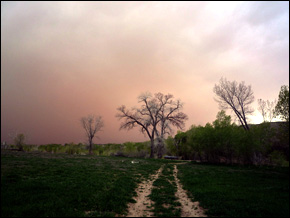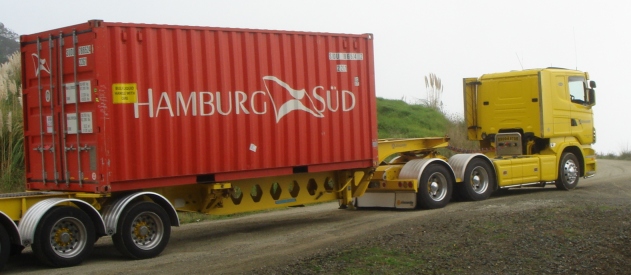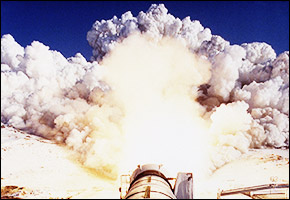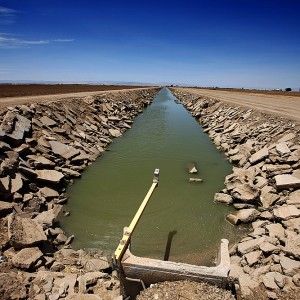Dust Storms Create Snow Melt Problems in Colorado
Storms in the Rocky Mountains in Colorado have already lead to water shortages in Aspen. City officials may plan to increase water storage capacity if they face more storms.

Man-made dust storms are threatening the snow packs atop the Rocky Mountains in Colorado, causing trouble for farmers, power companies and recreational businesses that rely on water from the melting snow, NPR reports.
Eight dust storms have been recorded this season, while 12 occurred last year altogether, according to the New York Times.
Since the dust is blacker and absorbs more heat, it causes the snow to melt more rapidly. Early snowmelt can cause reservoirs to overflow early in the spring, leaving low levels of water in the late summer. Local water department officials are concerned about the capability of catching and storing enough water as the heat absorbed by the dust leads to faster runoff.
The dust has caused a water shortage in Aspen, which relies on spring runoff for its water, according to Aspen Public Radio.
And while the Colorado Plateau is usually the main source of dust in the Rockies, the particles can come from as far as China.
“The Alps receive dust from the Sahara and the Taklamakan in western China, and the Gobi deposits dust into the mountain ranges in northwest China and Mongolia,” director of the Snow Optics Laboratory at the University of Utah, Thomas Painter, told NPR.
These non-native dust particles are so small that they pass through water filters, affecting water quality. To keep the water clean the Aspen Water Department are increasing their use of a polymer-based chemical that binds the dust particles together.
Meanwhile scientists have noticed an increase in early snowmelt over the years and that the dust storms will worsen as “grazing, mining and increased recreational use removes vegetative cover and to expose loose soils to wind,” according to the New York Times. Construction of renewable energy development and transportation needs for the projects may also disturb the dry landscapes, causing ideal circumstances for dust storms.
Aspen’s water department fears it could see further water shortages if the number of dust storms continues to increase around the city. The department might have to increase its storage facilities to brace for these potential changes.
Source: NPR, The New York Times, Aspen Public Radio








It would be interesting to know if Arid zone farming activities in Australia are also contributing to this effect.